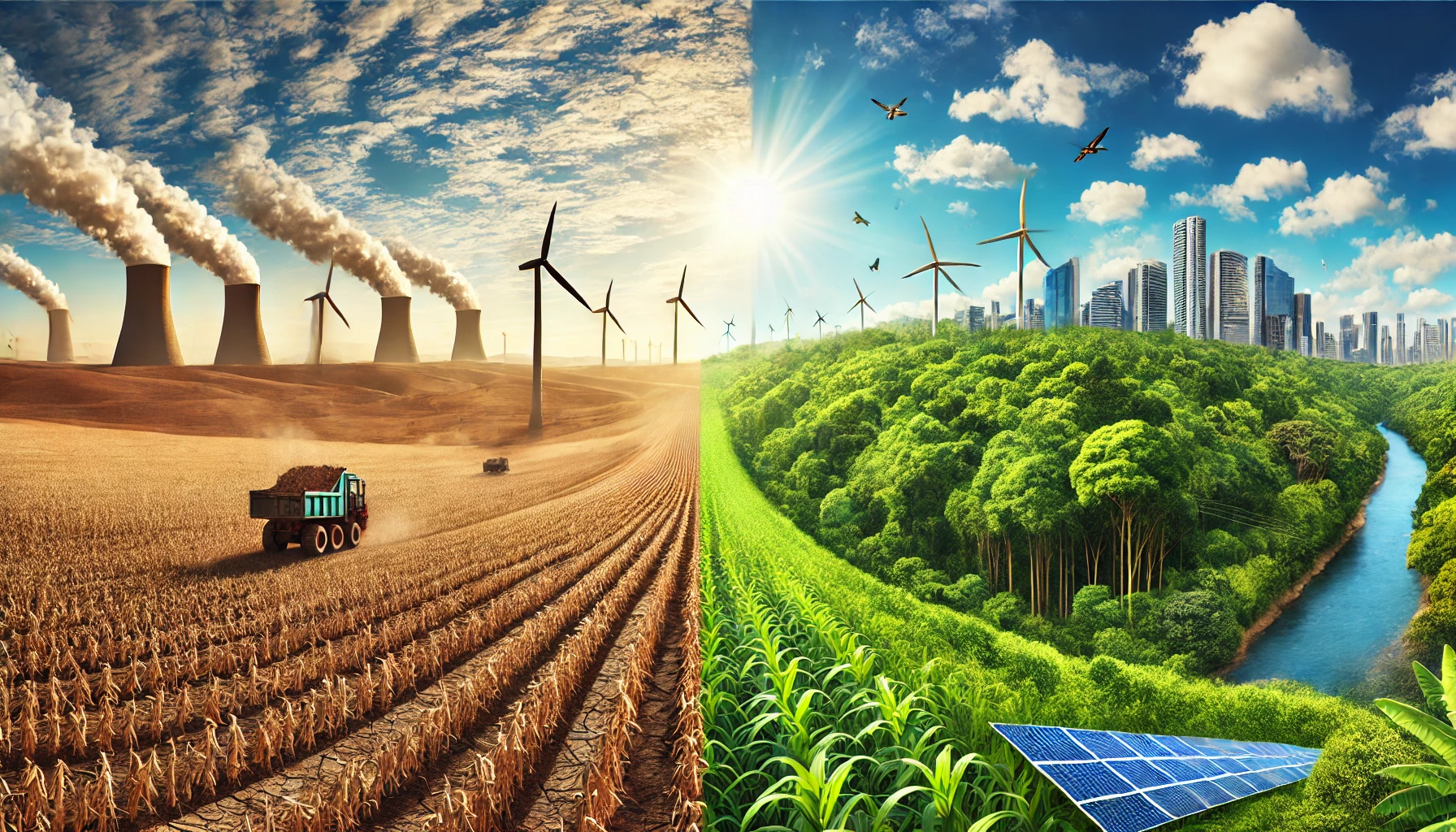From Climate Vulnerabilities to Green Leadership: Brazil's Strategic Path to Sustainable Growth
The study highlights Brazil's significant climate-related vulnerabilities, particularly in agriculture and hydropower, while outlining opportunities for green growth through targeted policy measures and investments in renewable energy and sustainable practices. By leveraging its green energy mix and biodiversity, Brazil can mitigate climate risks and boost its economic potential.

A study by the International Monetary Fund presents a detailed exploration of Brazil's climate-related challenges and opportunities. Authored by Chen Chen, Koralai Kirabaeva, Christina Kolerus, Ian Parry, and Nate Vernon, the paper delves into the significant vulnerabilities that Brazil faces due to its changing climate, focusing particularly on agriculture and hydropower. Brazil, known for its vast biodiversity and green energy mix, finds itself at a critical juncture where climate change is increasingly influencing its economy, particularly through more frequent and intense droughts and other extreme weather events. These climatic shifts have already begun to affect Brazil’s GDP and inflation, with the potential for even greater disruptions in the future.
Agriculture at Risk: The Impact of Climate Variability
Agriculture, a sector that contributes a substantial portion to Brazil's GDP and is a cornerstone of its export economy, is highly vulnerable to climate variability. The paper emphasizes the profound impact of adverse weather conditions, particularly droughts, on agricultural production and prices. Droughts, which have become more frequent and severe, are particularly damaging to small-scale, rainfed agriculture in regions like the Northeast, where irrigation systems are limited. This sector’s vulnerability is compounded by the fact that only a small fraction of farming activity is insured, leaving farmers exposed to significant financial risks. The document also highlights the role of land-use patterns in exacerbating these climate risks. Deforestation, especially in the Amazon, has altered water cycles and diminished the rainforest's resilience against climate shocks, increasing the likelihood of reaching a tipping point that could have catastrophic consequences for Brazil's ecosystem and economy. The Amazon's degradation not only affects local and global carbon storage but also reduces the availability of freshwater, making water-intensive industries like agriculture and hydropower more vulnerable.
Hydropower Challenges: Declining Water Availability
Hydropower, which historically has been Brazil’s largest source of electricity, is facing challenges due to decreasing water availability and changing rainfall patterns. The paper projects that these changes could reduce Brazil's hydropower capacity by up to 20% by 2050, necessitating increased reliance on more costly and less environmentally friendly thermal power sources. This shift would not only raise energy costs but also increase greenhouse gas emissions, undermining Brazil’s efforts to maintain its green energy credentials. Moreover, as the demand for electricity continues to rise, driven by economic growth and increased cooling needs due to higher temperatures, the reliability of Brazil’s energy supply could be further compromised. The paper estimates that without significant investment in renewable energy infrastructure and grid improvements, Brazil could face substantial power gaps, particularly during periods of low hydropower generation.
Leveraging Policy Options for Green Growth
In addition to highlighting these vulnerabilities, the paper outlines several policy options that could help Brazil mitigate the impacts of climate change while capitalizing on opportunities for green growth. One of the key recommendations is to enhance the resilience of the Amazon through targeted fiscal incentives and investments in sustainable land-use practices. By protecting the rainforest and promoting reforestation, Brazil could significantly reduce its carbon emissions and enhance its ability to withstand climate shocks. The paper also advocates for increased investment in climate-smart agriculture, which would involve adopting more resilient crop varieties, improving irrigation systems, and expanding insurance coverage to protect farmers from climate-related risks. These measures could help stabilize agricultural production and prices, ensuring food security and economic stability.
Diversifying Brazil’s Energy Mix
The paper also stresses the importance of diversifying Brazil’s energy mix to reduce its reliance on hydropower and mitigate the risks associated with climate-induced variability in water resources. Expanding investments in solar, wind, and other renewable energy sources is crucial for meeting future energy demand and avoiding the need to revert to fossil fuels. Brazil’s existing pipeline of renewable energy projects is impressive, but the paper calls for further investment in energy storage and grid infrastructure to ensure that these new sources of power can be effectively integrated into the national grid.
Brazil’s Path to Green Economic Leadership
Finally, the paper highlights the potential for Brazil to leverage its green energy mix and rich biodiversity to become a leader in the global green economy. By promoting the export of green energy, such as through green hydrogen, and expanding its role in the production of green goods and services, Brazil could boost its economic growth while contributing to global efforts to combat climate change. The recent approval of a cap-and-trade carbon market in Brazil is a positive step in this direction, providing a regulatory framework that could help drive further investment in green technologies and practices.
While Brazil faces significant climate-related challenges, it also has the potential to turn these challenges into opportunities for sustainable growth. By implementing comprehensive policies that address its key vulnerabilities and capitalize on its strengths, Brazil can navigate the complexities of climate change and emerge as a global leader in the green economy. The paper underscores the importance of a coordinated approach, combining fiscal incentives, regulatory measures, and private sector engagement to achieve these goals and ensure a resilient and prosperous future for Brazil.
- FIRST PUBLISHED IN:
- Devdiscourse
ALSO READ
India's Green Energy Surge: Leading with Hydrogen and Solar Innovations
Saatvik Green Energy Secures Major Solar Deal
PM Modi's Vision for Green Energy in Andhra Pradesh
Modi's Mega Push for Green Energy and Diaspora Connection in Andhra Pradesh and Odisha
GEAPP Partners with ISA to Propel India's Green Energy Future










